Chris Froome: Salbutamol case decision 'is a big moment for cycling'
Brailsford defends Sky's decision to field Froome throughout process
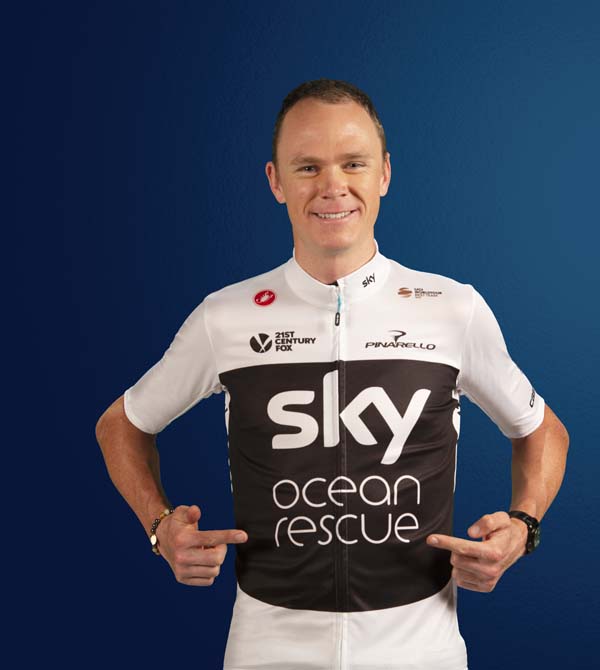
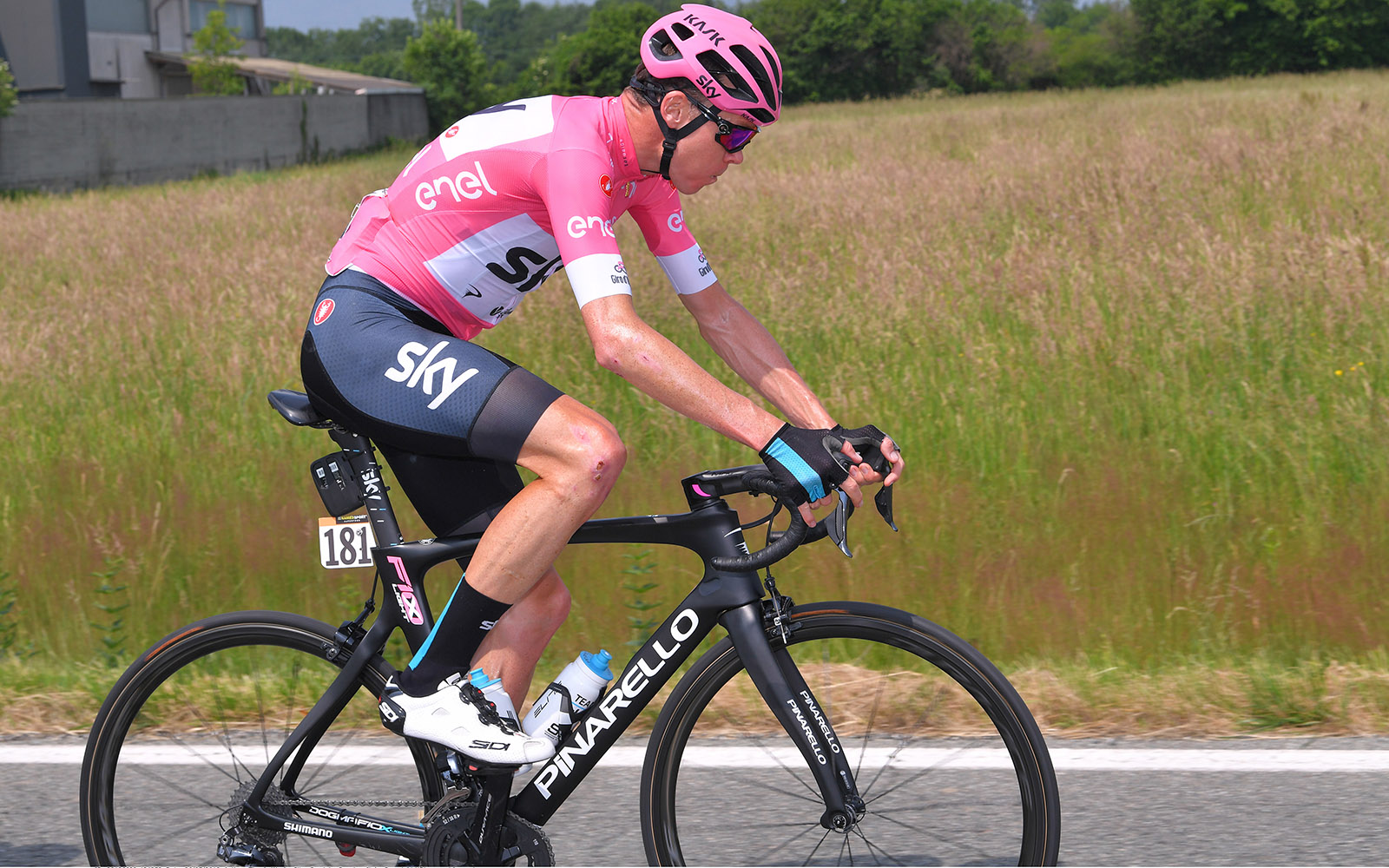
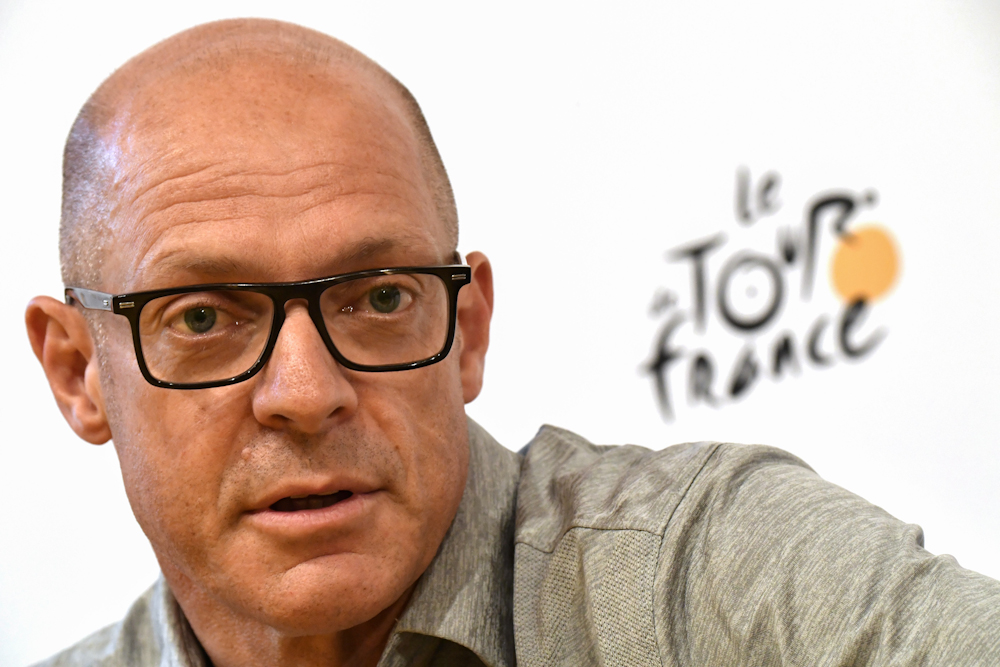
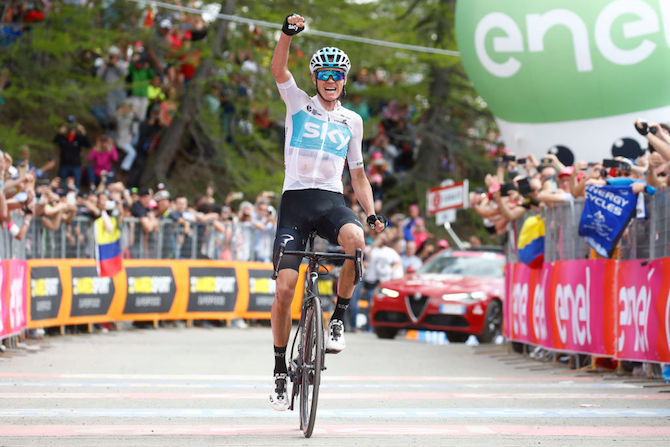
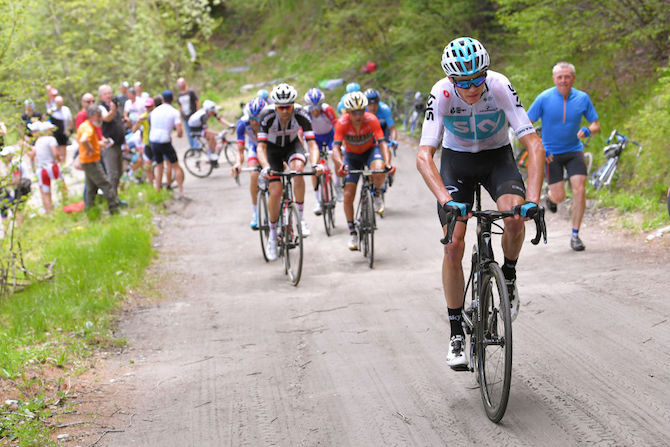
Chris Froome (Team Sky) has welcomed the UCI’s decision to drop its anti-doping proceedings against him, describing it as “an important moment for cycling.” Froome returned an anti-doping sample containing twice the permitted limit of salbutamol at last year’s Vuelta a España, but he was free to race pending the resolution of the case.
The UCI’s lengthy statement on Monday morning did not specify why it had dropped the case against Froome, beyond noting that the World Anti-Doping Agency (WADA) had indicated that it "would accept, based on the specific facts of the case, that Mr Froome’s sample results do not constitute an AAF [adverse analytical finding].”
“I am very pleased that the UCI has exonerated me,” Froome said in a statement issued by Team Sky. “While this decision is obviously a big deal for me and the Team, it’s also an important moment for cycling. I understand the history of this great sport – good and bad. I have always taken my leadership position very seriously and I always do things the right way. I meant it when I said that I would never dishonour a winner’s jersey and that my results would stand the test of time.”
News of Froome’s salbutamol positive broke in December of last year, but the Briton ignored UCI president David Lappartient wish that he recuse himself from racing until the case was resolved. Froome proceeded to win the Giro d’Italia in May and is now set to line out as favourite for the Tour de France, although ASO has made a formal attempt to block his participation on the grounds that his presence would damage the reputation in the race.
“I have never doubted that this case would be dismissed for the simple reason that I have known throughout I did nothing wrong. I have suffered with asthma since childhood. I know exactly what the rules are regarding my asthma medication and I only ever use my puffer to manage my symptoms within the permissible limits,” Froome said.
“Of course, the UCI had to examine these test results from the Vuelta. Unfortunately, the details of the case did not remain confidential, as they should have done. And I appreciate more than anyone else the frustration at how long the case has taken to resolve and the uncertainty this has caused. I am glad it’s finally over.
“I am grateful for all the support I have had from the Team and from many fans across the world. Today’s ruling draws a line. It means we can all move on and focus on the Tour de France.”
The latest race content, interviews, features, reviews and expert buying guides, direct to your inbox!
Brailsford
Froome’s anti-doping sample following stage 18 of last year’s Vuelta contained 2,000ng/ml of salbutamol, twice the permitted threshold of 1,000ng/ml. Froome said that he had taken salbutamol via an oral inhaler to treat asthma and insisted that he had not exceeded the permitted dosage of 1,600mg in 24 hours.
Under WADA regulations, an athlete who returns a positive test for a specified substance such as salbutamol is given the opportunity to demonstrate that they did not exceed the allowed dosage by way of a controlled pharmacokinetic study. It is unclear if Froome underwent such testing.
“Chris’s elevated Salbutamol urine reading from Stage 18 of the Vuelta was treated as a ‘presumed’ Adverse Analytical Finding (AAF) by the UCI and WADA, which triggered a requirement for us to provide further information. After a comprehensive review of that information, relevant data and scientific research, the UCI and WADA have concluded that there was, in fact, no AAF and that no rule has been broken,” Brailsford said.
“We said at the outset that there are complex medical and physiological issues which affect the metabolism and excretion of Salbutamol. The same individual can exhibit significant variations in test results taken over multiple days while using exactly the same amount of Salbutamol. This means that the level of Salbutamol in a single urine sample, alone, is not a reliable indicator of the amount inhaled.
“A review of all Chris’s 21 test results from the Vuelta revealed that the Stage 18 result was within his expected range of variation and therefore consistent with him having taken a permitted dose of Salbutamol.”
Brailsford defended Team Sky’s decision to field Froome while the case was still ongoing, and said the rider's "professionalism, integrity and good grace under pressure have been exemplary and a credit to the sport." If Team Sky were signed up to the additional, voluntary regulations of the Movement for Credible Cycling, Froome would not have been permitted to race during the proceedings.
“We have always had total confidence in Chris and his integrity. We knew that he had followed the right medical guidance in managing his asthma at the Vuelta and were sure that he would be exonerated in the end, which he has been,” Brailsford said. “This is why we decided that it was right for Chris to continue racing, in line with UCI rules, while the process was ongoing. We are pleased that it has now been resolved.”
The Froome case was not the only stain on Team Sky’s reputation in recent months. In March, the Parliamentary Select Committee’s report into doping in British sport contained a damning critique of Team Sky’s use of Therapeutic Use Exemptions and expressed scepticism on the team's explanation for the so-called Jiffy Bag case, where a mystery package was delivered for Bradley Wiggins following the final stage of the 2011 Critérium du Dauphiné. "We believe that drugs were being used by Team Sky, within the WADA rules, to enhance the performance of riders, and not just to treat medical need," the report stated.
“I've got my strong opinions about that report, if I'm honest about it,” Brailsford told the BBC in June, though he has yet to put forth a detailed rebuttal of its contents.
